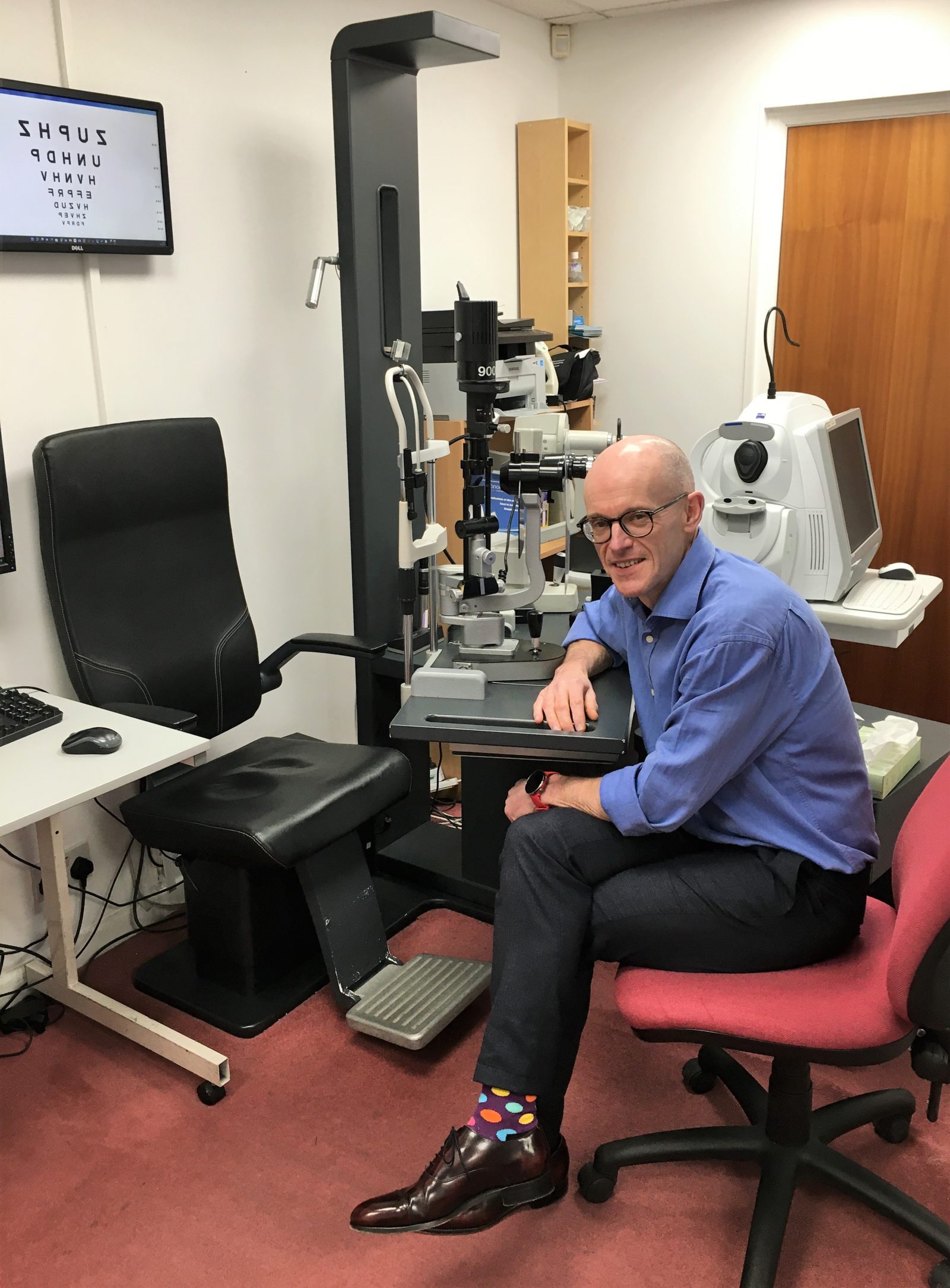A UNIFIED approach to optometry will be the future of eye-care in Wales.
Cwm Taf Morgannwg University Health Board has been selected to pilot a new cluster programme focused on further strengthening primary eye care services nationally.
With more than 30 years’ experience in the sector, former Southeast Wales Regional Optical Committee Chair Ian Jones has been selected to lead the project, supported by fellow optometrist Danielle Mealing.
Funded by the Strategic Programme for Primary Care (SPPC), they will help realise the Welsh Government’s vision for a wholly clinical approach to eye care, providing more support closer to home and reducing unnecessary referrals to GPs and hospital emergency departments.
“For years we have worked closely with GPs and hospitals but there have been challenges and the COVID-19 pandemic has played a big part in accelerating the need for a more joined-up approach,” said Ian, a partner optometrist in a small independent group in the Rhondda and Vale of Glamorgan.
“We are already in discussions with colleagues and looking to move forward together with more signposting, collaboration, and a cohesive plan that benefits everybody, especially patients.
“As a profession, we are perfectly placed to do this and believe this is going to be the future for eye-care because we know there is a need – and an appetite – for optometry to integrate with other health professions and a great deal of Welsh Government support for this in partnership with local health boards and community groups.”
Ian added: “The pandemic has allowed us to be more innovative, widen our horizons and led to a natural amount of cross referral.
“An example of this was in putting independent prescribers within specialist practices, which made a tremendous saving. That system has been preserved, which demonstrates optometry can work within a cluster model.”
Ian said they will now look to harness interest and build momentum and engagement, garnering best practice and feedback from the optometry arena on next steps.
“We have recently introduced new technology which has been particularly valuable in remote and emergency situations in hard-to-reach areas, but the bigger picture is centred on widening the service overall,” he added.
“The clusters we have in the Cwm Taf Morgannwg Health Board area are a good mix of independent and corporate practices, engagement has been positive and because we know a lot of them personally there is a foundation to build on, with the aim of eventually rolling this approach out across Wales.
“The nature of our profession, especially in this area, is to rise up to the challenge, which reflects well on our industry and is the best way forward for the people under our care.
“Crucially, for me it’s about giving back, striving to try and improve things and recognising patients are the priority. We will work closely together for everybody’s benefit – that will be at the forefront of our thinking during this pilot scheme.”
Sali Davis, Chief Executive of Optometry Wales, welcomed Ian and Danielle to their ‘proof of concept’ roles and said they could provide the template for the way in which practices operate in the advent of contract reform.
“We will likely see mandated formations of optometric practices to form their own professional collaboratives and then feed into the wider primary care cluster in their area which will allow all practices to be involved in local pathways that are properly funded,” she added.
The pilot will be monitored and evaluated to harness lessons learned and will be reported on in 12 months’ time.









Leave a Reply
View Comments